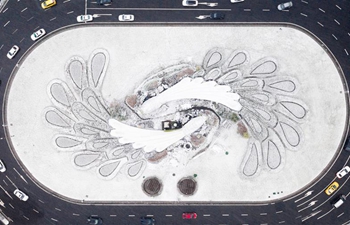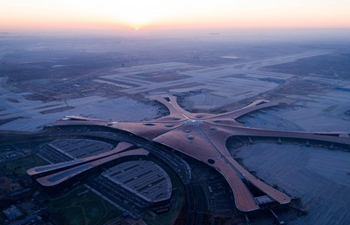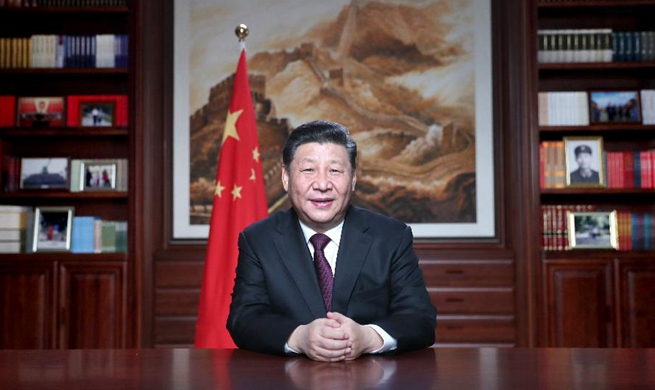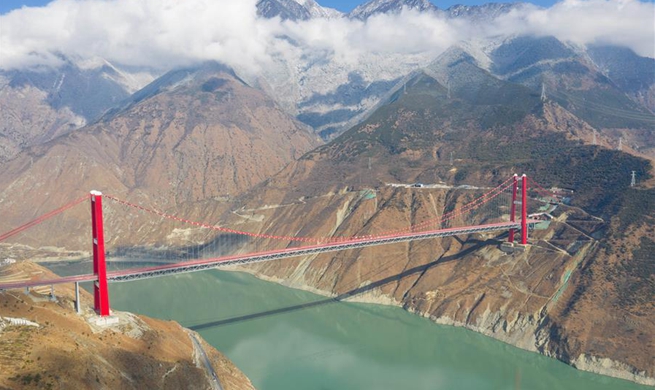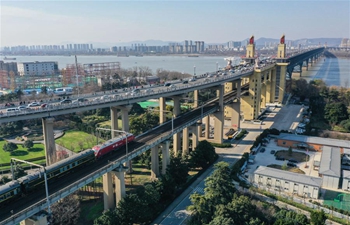by Habtamu Liben and Wang Shoubao
ADDIS ABABA, Dec. 31 (Xinhua) -- Rapprochement among Ethiopia, Eritrea and Somalia in 2018 has ignited hope of a new beginning as the Horn of Africa region welcomes the coming of 2019, shaking off two decades of armed standoff.
Eritrea and Somalia, which have been blaming each other for supporting rebel and terrorist groups, reestablished diplomatic relations, marking a new start in bilateral ties.
Positive developments between Ethiopia and Eritrea ended two decades of bitter armed standoff. The two neighbors fought a bloody border war in 1998-2000, killing an estimated 70,000 people from both sides.
INTERNATIONAL RECOGNITION
In the latest indication of improved relations among the Horn of Africa countries, the United Nations Security Council last month lifted sanctions against Eritrea, which include an arms embargo and other targeted sanctions.
The international community has welcomed the positive changes in one of Africa's most restive regions and vowed to provide more support for the region.
The chairperson of the African Union (AU) Commission, Moussa Faki Mahamat, in a statement last month, called for regional and international support as the Horn of Africa countries normalize their previously strained ties.
He urged regional leaders to sustain the momentum by taking all steps required to deepen their cooperation, stressing that the recent rapprochement is conducive to the shared objective of peace and prosperity on the continent.
"These developments are a major contribution to the African Union drive towards silencing the guns by 2020 and advancing continental integration in the context of Agenda 2063 flagship projects," Faki said, referring to the AU's 50-year continental development plan.
UN Security Council Resolution 1907, which was passed in 2009, accused Eritrea of supporting al-Shabab terrorists in Somalia. In 2011 to 2013, the Security Council passed three more resolutions the imposed additional sanctions on Eritrea.
The Ethiopian government, which had been a major proponent of stiffer sanctions against its former regional arch-rival Eritrea for the past two decades, was the first to congratulate Eritrea on ending the sanctions.
"The lifting of sanctions will further enhance the collaborative gains that have been achieved in the region over the last few months," the Ethiopian Prime Minister's Office said in a statement.
"It will have far-reaching effects in improving the stability of the Horn of Africa region and in building a lasting peace and normalization of relations among the countries in the region," the statement added.
Somali President Mohamed Abdullahi Mohamed Farmajo, who welcomed the lifting of arms and other targeted embargoes on his country's former regional rival, said that the lifting of sanctions was a result of "our collective request."
Describing the UN Security Council decision as a "helpful and timely intervention," Farmajo also reiterated that the Horn of Africa region is swiftly progressing toward "partnership and economic cooperation."
Eritrea's Minister of Information Yemane Gebremeskel praised the contribution of regional neighbors to the lifting of the sanctions.
"The government of Eritrea expresses its gratitude to all friends of Eritrea who added their moral weight, and contributed in different ways, to the lifting of the ignominious sanction," Gebremeskel said in a statement.
Eritrean Permanent Representative to the UN Amanuel Giorgio said his country "is committed to working with all its neighbors."
"The peace agreement between Eritrea and Ethiopia, and the tripartite agreement between Eritrea, Ethiopia and Somalia, mark the beginning of a new dawn," he said.
China's permanent representative to the UN, Ma Zhaoxu, called on the Security Council and the international community to provide assistance to the countries in the Horn of Africa.
Ma said that the relations among countries in the Horn of Africa have been continually improving over the past few months and that the lifting of sanctions is conducive to the peace and development in the region.
He also pledged that China will continue to work with the international community to play a constructive role in achieving peace, stability and development for the countries in the Horn of Africa.
BOLD MOVES FROM REGIONAL LEADERS
The process of regional rapprochement began on April 2 this year, when Ethiopia's newly elected Prime Minister Abiy Ahmed stressed his commitments to bringing about peaceful coexistence between Ethiopia and its former arch-rival Eritrea.
"We are fully committed to reconcile with our Eritrean brothers and sisters and extended an invitation to the Eritrean government to start dialogue and establish rapport," Ahmed said in his inaugural speech before members of both houses of the Ethiopian parliament.
Eritrea, once part of the Ethiopian federation before its independence in 1993, was quick to respond to Ethiopia's peace offer.
Eritrean President Isaias Afwerki agreed to start dialogue with Ethiopia on the basis of previous peace agreements, which Ethiopia refused to implement for nearly 27 years.
FAST FORWARD NORMALIZATION
On Sept. 6, Ethiopia reopened its embassy in Asmara, the Eritrean capital, after the reopening of Eritrea's embassy on July 16 in Ethiopia's capital, Addis Ababa.
As tensions eased, telecom services and direct flights between the two countries also resumed.
On Sept. 16, Eritrea's Afwerki and Ethiopia's Ahmed signed a peace accord in the Saudi Arabian city of Jeddah, reiterating their commitment to sustaining the historic peace agreement that ended two decades of armed standoff between the two east African neighbors.
Just days ago, on Sept. 11, the two leaders celebrated the traditional New Year together, and withdrew soldiers from the two countries' border areas.
ECONOMIC, INFRASTRUCTURE INTEGRATION
Leaders of the two countries, in another bid to augment their growing ties, agreed to enhance bilateral trade through Eritrea's port city of Assab to Ethiopia's Addis Ababa.
A decision to build a pipeline linking Addis Ababa and Assab was unveiled by the Ethiopian government and the United Arab Emirates, which would allow landlocked Ethiopia to export crude oil via the Eritrean port.
Ethiopia started petroleum test extraction from the Regional Somali State in June.
In September, the Ethiopian Roads Authority announced its plan to renovate the roadway connecting the two countries that has fallen into disuse for more than two decades.
Habtamu Tilahun, who heads the Ethiopian Roads Authority, said efforts are underway to build roads to help Ethiopia utilize Eritrea's ports.

